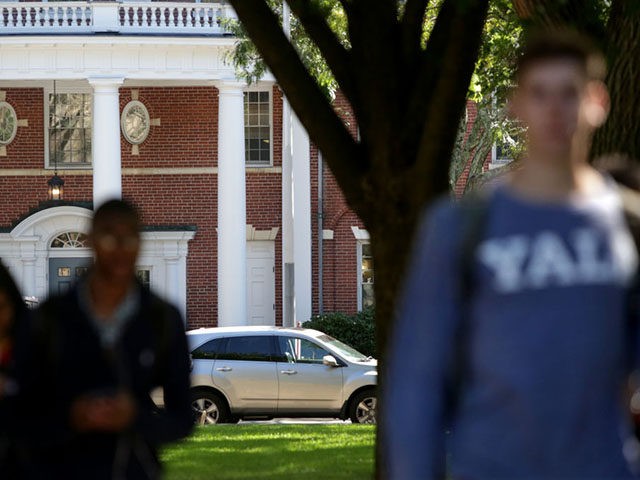The Biden Education Department handed over more than $76 billion in coronavirus relief funding to U.S. colleges and universities, yet many of these schools are beginning the new semester with remote classes only, even after mandating all students take COVID-19 vaccines and boosters.
In July, U.S. Secretary of Education Miguel Cardona announced an additional outlay from the federal Higher Education Emergency Relief Fund (HEERF), via the Democrats’ American Rescue Plan, which increased the funding to more than $76 billion:
The American Rescue Plan provided critical funds to make sure our nation’s institutions of higher education – particularly those that serve students most impacted by the COVID-19 pandemic – receive the resources they need in order to provide students with a high-quality education and the social, emotional and mental health supports to earn their degrees and thrive. These institutions have a long history of serving our students—particularly students of color, first-generation college students, and other students who are underrepresented in higher education—and the Department stands ready to support them so they can expand their vital services.
Despite the funding and its purpose, however, many schools that accepted it are not using it to provide students with that “high-quality education.”
Brad Polumbo, opinion editor at the Foundation for Economic Education, wrote Monday at Newsweek the move to revert to online learning amid the rise of “Omicron,” which has largely been associated with mild, cold-like symptoms, “is no small matter.”
“A May 2021 College Pulse survey found that a majority of students believe they learned less during remote classes than in their previous years. 81 percent said it was difficult to concentrate during online lectures,” @brad_polumbo writes in @Newsweek. https://t.co/wvgR4Ir8sa
— College Pulse (@CollegeInsights) January 5, 2022
“It’s nothing short of a betrayal of students,” he asserted. “And it’s one that has no legitimate basis in science or public health.”
Polumbo said college students blocked from in-person classes, extracurricular experiences, and necessary social/networking interactions will ultimately encounter the harms associated with a forced “laptop” college education.
He added a College Pulse survey released in May 2021 found a majority of college students believed they learned less with remote classes, with 81 percent stating they experienced difficulty concentrating during online lectures:
The ugly truth is that in exchange for tens of thousands of dollars in tuition, these students are getting a virtual education that resembles what they could get at a cheap online university or local community college. (In fairness, they’ll still get the fancy name on their degree, which is what many truly care about. That’s probably why not many students dropped out in 2020 despite the “virtual learning” calamity.)
As Fox Business noted last week, Yale University announced before Christmas its undergraduate and graduate classes would be held remotely through February 4, despite having been awarded over $5.2 million from HEERF.
Peter Salovey, the school’s president, and Scott Strobel, its provost, noted “a recent, worldwide surge in COVID-19 cases, driven by the highly infectious Omicron strain, has prompted us to raise alert levels on campus and adjust our plans to best protect our community.”
“As always, our priority is the health and well-being of everyone on campus and those in our surrounding community,” the officials wrote. “Yale College and GSAS courses will be taught online from January 25 through February 4.”
According to the Yale Daily News Facebook account:
Yale announced its plans for the start of spring semester in an afternoon email. Students can return to campus anytime…
Posted by Yale Daily News on Tuesday, January 4, 2022
Similarly, officials of Duke University, which had been awarded over $26.8 million from HEERF, announced December 31 they “have all watched with great concern the extraordinarily rapid spread of the Omicron variant in our communities and around the world.”
The announcement read:
All undergraduate, graduate, and professional school classes will now be remote until Tuesday, January 18 instead of January 10 as earlier announced. During this time, no hybrid or in-person classes will be permitted.
Other schools that received HEERF funds yet announced a return to remote classes or a delay in the start of the semester included Temple University and University of Washington, Vanderbilt University, and University of Miami, as Fox Business cited.

COMMENTS
Please let us know if you're having issues with commenting.